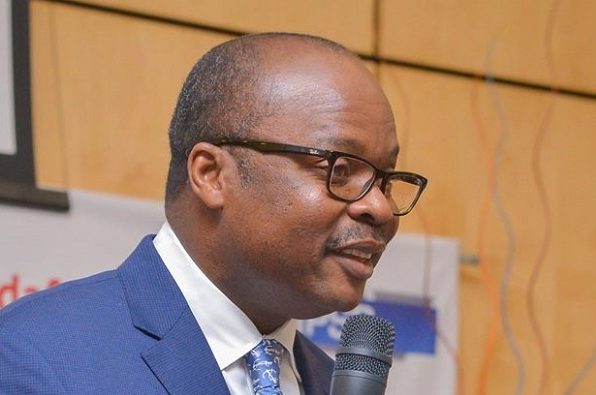
Emergency MPC meeting: Goldman Sachs predicts 200bp hike in policy rate
A global investment and research firm, Goldman Sachs, has predicted that the Bank of Ghana (BoG) will raise its policy rate by 200 basis points (bp) on Wednesday when it concludes an emergency Monetary Policy Committee (MPC) meeting called to respond to the current economic challenges.
The firm said in a research update issued today (August 16, 2022) that the central bank would raise the rate from the current 19 per cent to 21 per cent in an attempt to calm the turbulence in the foreign exchange (FX) market and help ease inflationary pressures.
It said the cedi had so far lost more than 50 per cent of its value and a rate hike could help ease the pressure.
The seven-member MPC, chaired by the Governor of BoG, Dr Ernest Addison, last stayed the rate at 19 per cent in July 2022, citing the need to stimulate growth at a time when inflationary pressures were easing.
Emergency meeting
The Goldman Sachs update was in response to an earlier notice from BoG that it will undertake an emergency MPC meeting Wednesday (August 17, 2022) to review recent developments in the economy.
The notice, issued last Monday, said the meeting would conclude with the announcement of the decisions of the committee.
Cedi’s challenges
In its research update, Goldman Sachs said the meeting came after an acceleration in the pace of depreciation of the cedi in the past two weeks.
It said the local currency lost almost 10 per cent of its value to the United States (USA) dollar in the past two weeks, amounting to a cumulative 50 per cent currency depreciation year-to-date.
“In our view, inflation and financial stability risks, stemming from this FX weakness, combined with the challenging domestic financing environment for the government, which has led the BoG to begin monetising the deficit have prompted the call for this meeting.”
“We expect the MPC to announce a 200bp policy rate hike to 21 per cent,” it said.
‘Dovish surprise’
Goldman Sachs said it noted a meaningful upside risk to its forecast, given the extent of FX and domestic financing pressures. It recalled that the MPC maintained the policy rate at 19 per cent at its July meeting, on account of growth headwinds and slowing sequential inflation prints.
It described the decision as “a dovish policy surprise.”
According to the firm, the consensus at the time was for the rate to be hiked to 20 per cent minimum or 21 per cent maximum.
“Since then, headline inflation (year-on-year) surprised to the upside in July and was stable in sequential terms at plus 3.1 per cent on month-on-month (37.2 per cent in annualised terms), a very elevated rate relative to the BoG's target or eight per cent or 10 per cent.
Lack of urgency
Goldman Sachs also said it noticed some lack of urgency on the part of the government in clinching a deal from the International Monetary Fund (IMF) quickly to stabilise the economy.
“In our recent trip to Accra, one notable observation was the authorities’ perceived lack of urgency in concluding programme talks with the IMF (with locals expecting a six to nine-month timeframe), in spite of intensifying balance of payments (BoP), FX and fiscal financing pressures.
“We have argued that a delayed conclusion creates the risk of further deficit monetisation by the BoG, cedi depreciation and a decline in FX reserves, implying that the macroeconomic outlook may deteriorate further in the near term,” the investment and research firm said.
Accelerate IMF talks
It, however, noted that the currency pressure and the inability to finance the deficit could serve to increase the sense of urgency and ultimately prompt the government to accelerate IMF talks.
“In this regard, we will look for any update from BoG on IMF talks in its communique following tomorrow’s unscheduled rate-setting meeting,” the update concluded.
Wednesday’s emergency MPC meeting will be the second of its kind since 2020, when an earlier-than-usual one was called in March for the bank to respond to the emerging economic disruptions that followed the emergency of COVID-19 cases in the country and Africa as a whole.